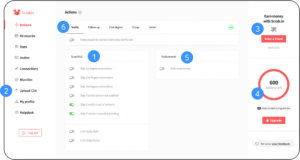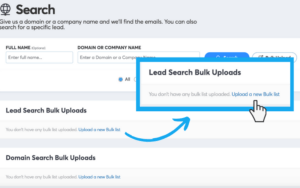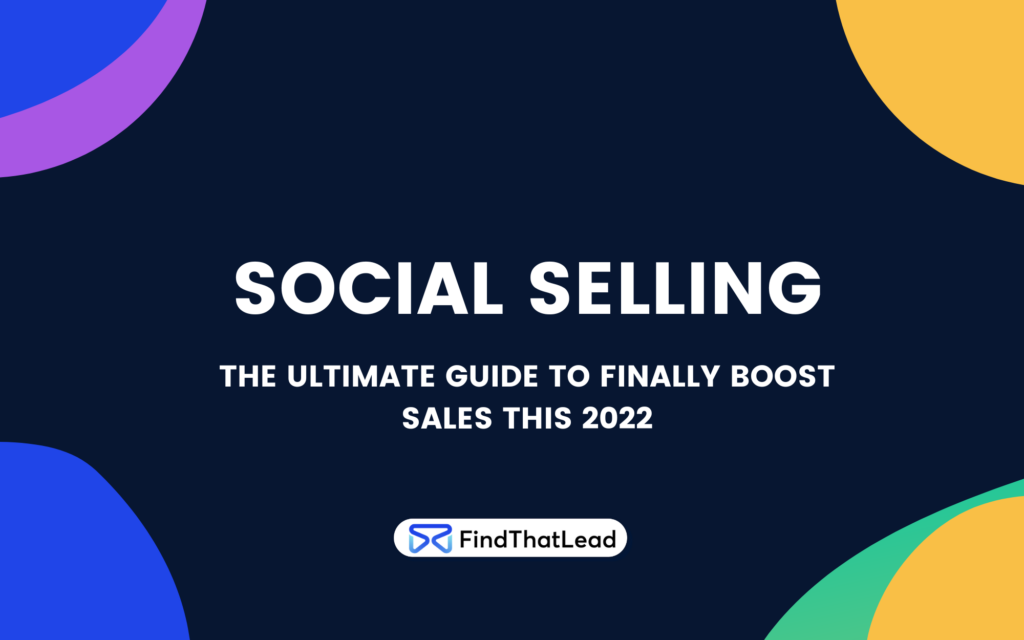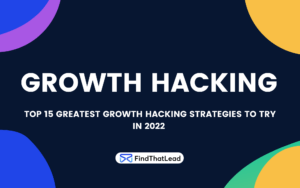Social Selling: maybe you’ve heard of it, but you’re not quite sure of what it means, are you?
Do you think it’s the same as social media marketing (Spoiler: it’s not)? 😉
Or maybe you think it’s basically advertising on social networks? (Second spoiler: neither. This is something totally different!).
In short, Social Selling allows your business to focus on potential customers on social networks and establish a relationship with a network of potential customers. If done right, this strategy can replace the dreaded practice of cold calling 😎.
If you haven’t yet integrated Social Selling into your funnel, you’re probably losing business to more social media-savvy competitors. But once you’ve finished reading this guide, you’ll have all the information you need to change that.
What is Social Selling
Let’s clearly define the concept so that you don’t confuse it with social media marketing anymore… It’s much more than this, and if you combine them, it’s even better! 😈
Social Selling is the practice of using a brand’s social media channels to connect with potential customers, develop a connection with them and engage with them. This tactic can help companies achieve their sales goals.
Think of Social Selling as a modern way to build relationships (much better than cold calling. That’s right, you’re learning 😉).
⭐ Tip: Actively connecting with prospects on social media can help you be the first brand a prospect considers when they’re ready to make a purchase. And it can replace outdated, traditional sales and relationship-building techniques that no longer serve to achieve good results.
What is not Social Selling
Social Selling doesn’t consist on bombarding strangers with unsolicited tweets or text messages (don’t do it ⚠️).
It’s not just about adding new contacts to your list either. It’s about making those interactions meaningful and presenting your brand as a solution to a problem. When you do that, you’re more likely to build trust and loyalty.
⭐ Tip: Highlighting the value of products helps the brand naturally attract the right target audience and drives sales.
Are you already involved in Social Selling without knowing it?
You probably are! 😉
If your brand has a Facebook company page, a LinkedIn page or a Twitter profile, or is active on any other platform, you are already involved in this Social Selling strategy. You just need to know how to make it serve correctly!
4 reasons why your company should care about Social Selling
If you’re still not convinced of the importance of Social Selling, here are 4 reasons why you should be:
1. Social Selling, WORKS
Don’t just take our word for it (although you should 🤓). According to LinkedIn Sales Solutions internal data:
- Companies that are leaders in the Social Selling space create 45% more sales opportunities than brands with a low Social Selling score.
- Companies that prioritize Social Selling are 51% more likely to hit their sales quotas.
- 78% of businesses that use social selling outperform businesses that do not use social media in sales.
2. Social Selling helps your sales team to build real relationships
Networking and relationship building has moved to the Internet due to the past (🥳) COVID-19 pandemic, and that’s why now is the perfect time to prioritize Social Selling.
Create opportunities to connect with new prospects on social media, where they are already active and engaged in conversations. Using social listening tools allows your sales reps to go further and identify potential customers who are already talking about your company, your competitors or your industry.
⭐ Tip: This means you can reach an audience that already has an interest in what you offer and connect authentically with them, providing them with useful information at the right time. Authenticity builds trust, and that, in turn, can lead to customer loyalty.
3. Your customers (and prospects) are already engaged in social shopping
Besides, who hasn’t bought something they’ve seen on social networks? 🤔
Considering the high volume of people using social media today, the potential for brands to make sales through social media is enormous!
- 4.2 billion people worldwide are active on social networks.
- Social media platforms gained 490 million users in 2020 alone.
In addition, many of those users are using the platforms for brand research. Simply put, these users are getting ready to buy. And you, you need to be prepared to inform them in the best way possible 😎.
4. Your main competitors are already doing social selling
Using Social Selling means staying competitive.
Many of the brands that you consider your main competitors are already active in social networks and interact with their potential customers (I remind you that they are also yours).
⭐ Tip: Being present where the potential customer is is of great importance in order to be able to reach him and sell the service or product you have in mind.
What are the best platforms for Social Selling?
In short, it depends, as everything in life 🙄.
Your choice should depend on your target audience and your approach to strategy.
Twitter and Instagram are great platforms for interacting with customers. They offer tools for responding to customer inquiries and are informal virtual spaces where communication comes naturally. In short, they are ideal for building relationships.
However, one of the social networks most commonly used for Social Selling is LinkedIn, especially if you make B2B sales.
In this way, we could say that this is a more formal business platform, ideal for B2B companies looking to identify and reach business decision makers. Here, companies can connect with potential customers directly to try to build a professional relationship:
3 steps to Social Selling on LinkedIn
1. Build your credibility
If you have a good relationship with your contacts, ask them to endorse or recommend you. These are posted on your profile and can help you give instant credibility to new contacts.
⭐ Tip: As a brand, make sure your profile highlights relevant expertise to a potential client, highlighting how you have helped previous clients achieve their goals.
You should also only share information and content from credible sources and ensure you maintain a professional tone in all your LinkedIn activity.
2. Expand your LinkedIn network
Use LinkedIn’s search function to expand your network by looking for mutual connections with your current contacts.
⭐ Tip: You can also join LinkedIn groups related to your industry to network with peers and potential clients.
3. Use Scrab.in
The last step would probably take you ages if you want to get a large number of leads. But we have the solution! 😎 (tranquil@, te lo contamos TODO).
How to get clients on LinkedIn using Scrab.in
Step 1: Optimize your LinkedIn profile
Let’s get everything in order before we start sending messages or contact requests. In the same way we arrange ourselves to look our best before an appointment (sorry if it’s been a long time since you had one 😣), the same goes for a client, so we will leave our profile looking presentable and good 😏.
1. Make sure you have a good profile picture.
2. Design a banner that mentions something about your company, a striking and descriptive message in a few lines, and be sure to change this banner every week for a different one, so you give a little life and variety to your profile.
3. Publish articles and posts every week: It must be content of value and related to your sector, if you do not know what to publish or do not have time to write, a good idea is to share all the Marketing actions that you are already doing: webinars, videos, post on Instagram or other social networks 😉.
Step 2: Configuring the scrab.in extension
Pay attention that now we are going to configure the tool that will do the magic: Scrab.in. 💙
- Although you can use Scrab.in in many ways, for B2B customer prospecting you should follow the directions:Sign up for scrab.in and log in from the Google Chrome extension. You will get a configuration that is very easy to manage. Here are the steps 😉:

Step 3: Visit profiles with Scrabin
- Connect to your Linkedin
- Select the profile you are interested in prospecting: For example: marketing director in Spain.
You must fill in the field in the search box with the profile “marketing director”, click on “people” and then in “locations” select Spain (or the place of interest you have).
⭐ Tip: Be as specific as possible, always thinking about your buyer persona.
Now, simply:
- Select the “second level contacts” option:
- Click on the extension and press the play button inside the “visit profile” tab.
- Let it run for a week or two, i.e. you should have your computer on and not close the Google Chrome window during your working day.
You just have to relax and continue with your usual work, the bot is responsible for doing the job automatically, in addition to visiting the profiles, also collects data from them, such as name, surname, company, location, domain, email, etc. Enjoy! 🥳
Don’t forget the most important thing: Download the CSV file at the end of the tracking! Here you will have all your leads 😏.
Step 4: Re-connect
Just like that, we have already invited 4,000 or 5,000 people to connect, which translates into many new first level contacts, now let’s take the next step: re-connect!
Depending on your preference you can choose between these two options:
Option 1: scrab.in on Linkedin
Enter Linkedin, select only first level contacts, always with the same person profile: For example, marketing director in Madrid.
Set a message: it should be a very short invitation to talk, make sure that your product will help him.
The message can be “Hi Gerard (name of the person always) , is it ok for you to talk tomorrow at 10 o’clock?”
Linkedin messages should be less than 300 characters.
No need to introduce yourself, no need to make a long presentation of your brand or say anything else, he is already your contact and he can see who you are by gossiping your amazing profile you already have set up.
Option 2: FindThatLead
Log in or register at FindThatLead.com.
Go to FindThatLead’s “Lead Search” tool, click on Lead Search Bulk Upload to generate your database.

This option allows us to upload the database we have collected with scrab.in! (Yes, everything is related). 💙.
You can take advantage of the same tool “Lead Seach” to generate leads by searching for contacts by company name, the application will generate the list of emails in CSV file.
Send a first email to these people, remember that we want it to be direct and friendly, an invitation to talk and tell them how your product can help them 😉.
Social Selling Best Practices
Whatever platform you use to reach your unique audience, be sure to adopt social selling best practices. Here are 4 to keep in mind 🧐.
1. Establish your brand by providing value
When interacting with customers and prospects through social media, it’s important not to be too salesy.
⭐ Tip: And if your brand is new to a social media platform, don’t jump into social selling right away. Before jumping into selling, establish your position as an expert in your industry.
One way to build your brand on social media for social selling is by sharing interesting, valuable and shareable content.
2. Escucha estratégicamente y establece relaciones con las personas adecuadas
Social Selling is not just about getting lists of leads and sending any message 💔, signify your attention. In other words, make sure you are listening on social media.
Try to monitor what people are saying about you, your company, your industry and your competitors. Be on the lookout for pain points and requests, which are natural opportunities to offer solutions.
3. Keep the contact real
Instead of writing one note and sending it to countless potential buyers, take the time to personalize your social selling messages. This means you could:
- Acknowledge your mutual professional contacts.
- Reference a piece of content you’ve both shared or reacted to.
- Highlight a shared interest or something you have in common.
4. Be consistent
Finally, don’t expect immediate results. If your relationship-building efforts don’t yield immediate results, don’t give up. Some contacts may not yet be ready to buy what you’re offering – keep in touch!
Follow up with potential new customers. Get in touch with contacts you’ve connected with in the past, but haven’t heard from in a while.







 BONUS:
BONUS: The Challenge: Join this free course and I guarantee that after 5 days you will have the necessary skills to start generating B2B clients Growth Hacking and Prospecting techniques.
The Challenge: Join this free course and I guarantee that after 5 days you will have the necessary skills to start generating B2B clients Growth Hacking and Prospecting techniques.